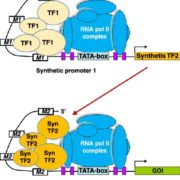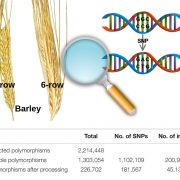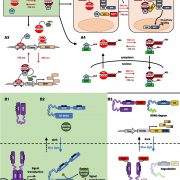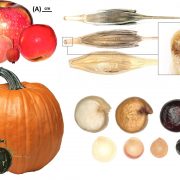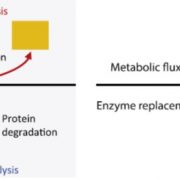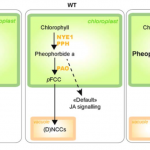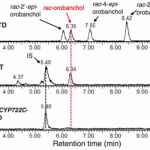Review: The impact of synthetic biology for future agriculture and nutrition
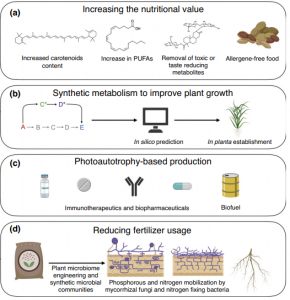 The synthetic biology field is going to be important for the decade we began in order to face climate challenges, including food security. However, plant synthetic biology lags behind bacterial and other eukaryotic systems. Roell and Zurbriggen summarize in this review, many of the projects that are currently taking place in this multidisciplinary subfield. They highlight how scientists around the world are engineering plants to improve nutrition quality removing undesirable metabolites and increasing beneficial ones. Plants can also help in the massive production of valuable biopharmaceutical and immunotherapeutic products thanks to their scalability. Scientists are also working on the improvement of plant autotrophic metabolism using synthetic biology. The reduction in fertilizer use is one of the main topics in the field too, that includes the use of synthetic bacterial communities, plant nitrogenases, and the establishment of the rhizobium-legume symbiosis. Decades ago, many promises were made about plant genetic engineering, some of them are coming on age in spite of limitations in the regulatory framework and will attract great attention in the future. (Summary by Facundo Romani) Curr. Opin. Biotech. 10.1016/j.copbio.2019.10.004
The synthetic biology field is going to be important for the decade we began in order to face climate challenges, including food security. However, plant synthetic biology lags behind bacterial and other eukaryotic systems. Roell and Zurbriggen summarize in this review, many of the projects that are currently taking place in this multidisciplinary subfield. They highlight how scientists around the world are engineering plants to improve nutrition quality removing undesirable metabolites and increasing beneficial ones. Plants can also help in the massive production of valuable biopharmaceutical and immunotherapeutic products thanks to their scalability. Scientists are also working on the improvement of plant autotrophic metabolism using synthetic biology. The reduction in fertilizer use is one of the main topics in the field too, that includes the use of synthetic bacterial communities, plant nitrogenases, and the establishment of the rhizobium-legume symbiosis. Decades ago, many promises were made about plant genetic engineering, some of them are coming on age in spite of limitations in the regulatory framework and will attract great attention in the future. (Summary by Facundo Romani) Curr. Opin. Biotech. 10.1016/j.copbio.2019.10.004


